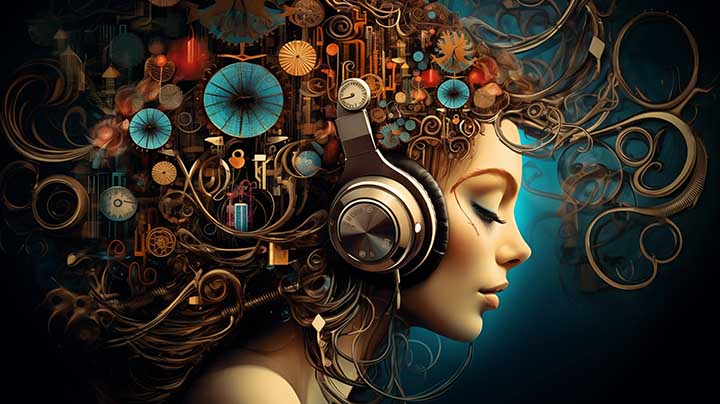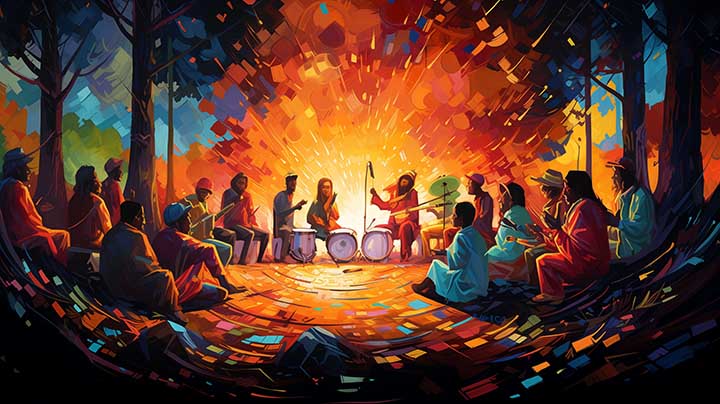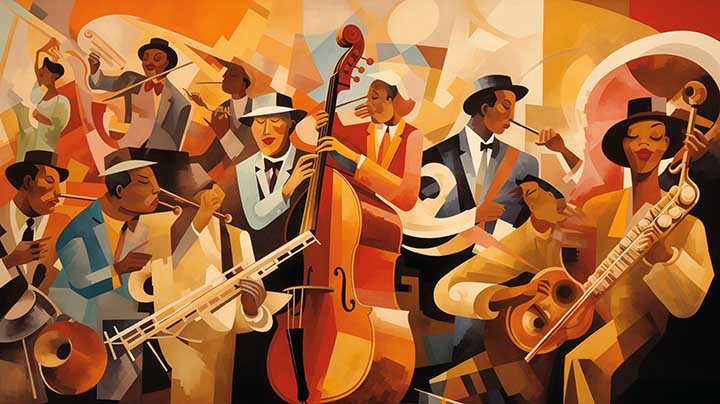Music is a powerful force that has been an integral part of the human experience for centuries. From ancient rituals and ceremonies to modern-day concerts and streaming platforms, music has the ability to evoke emotions, connect people, and transcend cultural and linguistic barriers.
On a personal level, music has the power to move us in ways that words alone cannot. It has the ability to evoke a wide range of emotions, from joy and happiness to sadness and nostalgia. Whether it’s a catchy pop song that makes us want to dance or a soulful ballad that brings tears to our eyes, music has a unique way of touching our hearts and souls. It has the ability to express and communicate emotions that may be difficult to put into words, providing a form of catharsis and emotional release.
Music also has the ability to enhance our moods and improve our overall well-being. Research has shown that listening to music can reduce stress, anxiety, and depression, and can even have physical benefits such as lowering blood pressure and heart rate. Music has the power to transport us to different places and times, allowing us to escape from the stresses of everyday life and find solace in its melodies and rhythms. Whether we’re listening to upbeat music to boost our energy or soothing music to relax and unwind, music has the ability to positively impact our mental and emotional state.
Furthermore, music has a unique ability to bring people together and create a sense of community. It has been used throughout history as a means of social bonding and cultural expression. From tribal drumming and chanting to modern-day concerts and music festivals, music has the power to unite people from different backgrounds and create a shared experience. It has the ability to break down barriers and foster a sense of connection and belonging. Whether it’s singing along to a favorite song with friends or attending a live concert surrounded by thousands of like-minded fans, music has the ability to create lasting memories and forge lifelong friendships.
Music also plays a significant role in cultural identity and heritage. It is often deeply intertwined with a culture’s traditions, rituals, and celebrations. From traditional folk songs that tell stories of a community’s history to national anthems that symbolize a country’s identity, music serves as a powerful tool for cultural expression and preservation. It has the ability to transmit cultural values, beliefs, and traditions from one generation to the next. Music allows us to connect with our roots, celebrate our heritage, and honor the diversity of human cultures.
Moreover, music has the power to inspire and drive social change. Throughout history, music has been used as a platform for protest, activism, and advocacy. From the civil rights movement in the United States to anti-apartheid protests in South Africa, music has played a crucial role in raising awareness, mobilizing communities, and giving voice to marginalized groups. Music has the ability to convey powerful messages, challenge the status quo, and inspire individuals to take action. It has the power to ignite a sense of hope, unity, and resilience in the face of adversity.
In addition to its personal and social impact, music also has a significant role in education and cognitive development. Numerous studies have shown that music education can enhance cognitive skills, improve academic performance, and foster creativity and critical thinking. Learning to play an instrument or sing in a choir can improve memory, attention, and problem-solving skills. Music education also provides a platform for self-expression and self-discovery, allowing individuals to explore their talents and passions.
Furthermore, music has the ability to transcend language barriers and communicate on a universal level. Regardless of the language in which a song is sung, the emotions and feelings conveyed through the music can be understood and appreciated by people from different cultures and backgrounds. Music has the power to create a sense of unity and understanding, bridging gaps and fostering empathy and compassion. It serves as a universal language that connects people on a deeper level, beyond words and cultural differences.
In conclusion, music is an essential part of the human experience. It has the power to evoke emotions, enhance our well-being, and bring people together. Music serves as a form of personal expression, allowing us to connect with our emotions and find solace in its melodies and rhythms. It also plays a significant role in social and cultural contexts, fostering a sense of community, preserving cultural heritage, and inspiring social change. Music has the ability to transcend boundaries and communicate on a universal level, serving as a powerful tool for connection and understanding. Whether we’re listening to music for personal enjoyment, attending a live concert, or using it as a means of cultural expression, music enriches our lives and has a profound impact on our well-being and sense of belonging.





